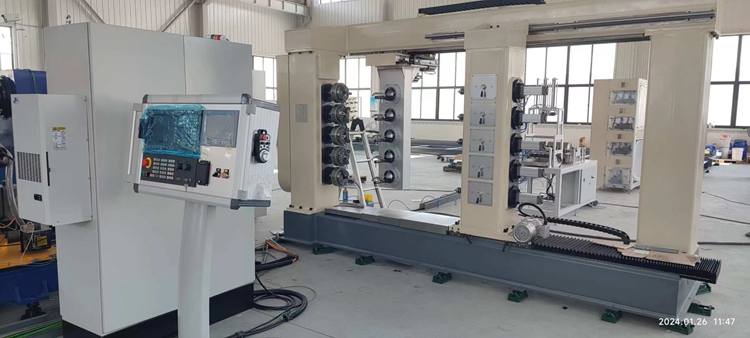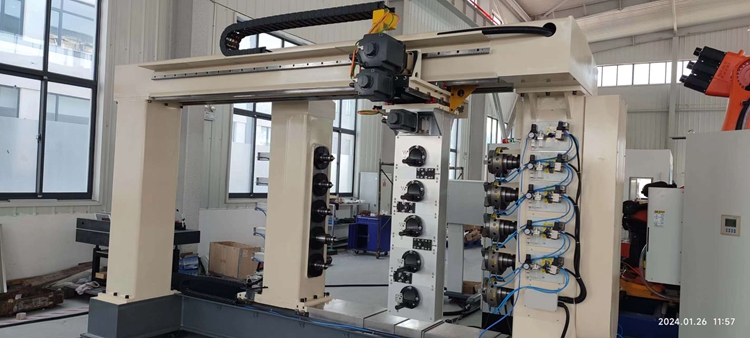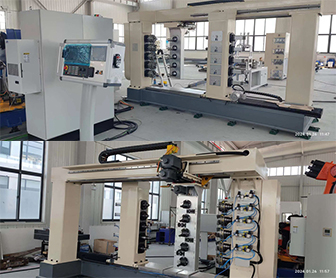This equipment is mainly used for wet fiber (carbon fiber or glass fiber) winding, targeting the winding forming of gas cylinders, pipe fittings, spheres, vertebral bodies, composite bodies, equiaxed holes, and non equiaxed hole containers.
It performs one to multiple strands of yarn soaking and direct winding process, and has the function of winding five gas cylinders at once.
1. It can achieve spiral, circumferential, spiral and circumferential transition winding functions.
2. It have functions such as yarn breakage alarm, automatic shutdown, and continuation of winding at break points.


This equipment is mainly used for wet fiber (carbon fiber or glass fiber) winding, targeting the winding forming of gas cylinders, pipe fittings, spheres, vertebral bodies, composite bodies, equiaxed holes, and non equiaxed hole containers.
It performs one to multiple strands of yarn soaking and direct winding process, and has the function of winding five gas cylinders at once.
1. It can achieve spiral, circumferential, spiral and circumferential transition winding functions.
2. It have functions such as yarn breakage alarm, automatic shutdown, and continuation of winding at break points.
Equipment technical parameters and specifications:
1、Structural style: Gantry
2、Maximum clamping length: 2500mm
3、Maximum effective winding length: 1500mm
4、Maximum winding diameter: φ180mm
5、Maximum clamping weight: 150kg
6、Resin groove: Sharing a set of resin groove
7、Resin groove capacity: 10L
8、Resin groove heating style:Water bath heating
9、Resin temperature:Room temperature -80 ℃, temperature control accuracy ± 2 ℃
10、Control form: Siemens 828DSL CNC system
11、Winding angle: 0-90 °
12、Maximum spindle speed: 120rpm
13、Maximum yarn drawing speed: 2m/s
14、Dolly maximum: 90m/min
15、Dolly maximum run distance: 1700mm
16、Maximum speed of arm extension: 39m/min
17、Maximum run distance of arm extension: 220mm
18、Swinging speed of yarn nozzle (rotational speed): 120rpm
19、Rotation angle of yarn nozzle: ±180°
20、Repetitive positioning accuracy of dolly: ±0.02mm
21、Winding accuracy: ±0.1mm
22、Precision of repeated spindle positioning: ±0.02°
23、Coaxiality between spindle and tailstock: ≤0.06mm
24、Number of yarn racks:1 set
25、Quantity of yarn balls: 15
26、Single strand yarn carbon fiber tension: 10N--80N
27、Power: 380V/50Hz
28、Color: Standard
29、Comprehensive maximum winding speed: 1.5m/s









